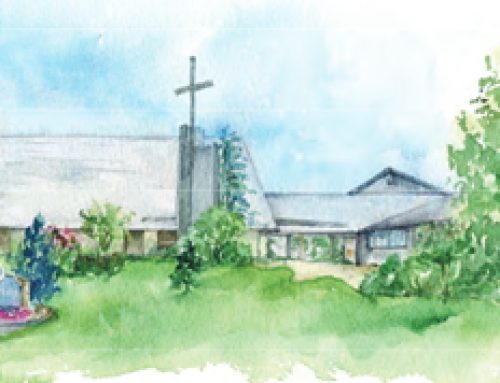Divine Mercy Sunday
Jesus I trust in you.
FROM THE PASTOR’S DESK
Dear Parishioners,
Peace be with you-I just lost my job. Peace be with you-I worry about my daughter’s relationship with an abusive boyfriend. Peace be with you-my spouse and I do not even talk; we lead parallel lives. Peace be with you-I’m flunking English. Peace be with you-I’m not feeling well and I’m beginning to worry.
Three times in today’s Gospel, Jesus addresses his disciples with the greeting, “Peace be with you.” It is a way of promising life, healing, and joy. We desire these gifts. But very frequently Jesus’ greeting of peace is at odds with the worries and the troubles of our lives. As these worries and troubles press in around us, it is understandable why we might question: Can we believe in Jesus’ greeting? Is there reason to hope in the promise of peace?
Now, this is a very serious question. Many people who criticize religion would suggest that faith is only a denial or an illusion—a way of pretending that things are fine when they really are not. From this perspective, Jesus’ greeting might come across as a string of empty words. But there are more than words in today’s Gospel.
Immediately after Jesus greets his disciples, he follows it with an action. He says, “Peace be with you,” and then he shows them his hands and his side. There is not even a breath space between the greeting and the scars. Jesus unites peace with woundedness. He does this to show us that woundedness is not to be hidden but to be shared. When we share our woundedness, it leads to compassion which, in turn, leads to peace.
Now, Jesus is not telling us that we should go around dumping our pain on everyone who we meet. We all know someone who uses their misery as a way of manipulation. But Jesus is telling us is that in relationships of friendship and love, we can sometimes serve the other person not only with strength but also with weakness. When someone we care for is worried, fearful, or in pain, our immediate response is to fix the problem. But in so many circumstances, that ability is not given to us. We cannot always take away that which threatens the one we love.
What we can do-and what Jesus invites us to do-is to display our weakness, to let the person whom we love to know that we too have fears, worries, and pain. When we share our weakness, we say to the one we love, “You are not alone. I understand. I will be with you.”
All of us are wounded. All of us have fear, pain, and worry. Today’s Gospel tells us that our woundedness is not to be hidden but to be shared. Our struggles are not to be denied but used to bring healing to others. For when we share our weakness, it leads to compassion, which in turn leads to peace.
The risen Jesus still bears the scars of his passion. He uses his woundedness to bring Thomas to faith, to bring the disciples to joy. He does this as an example for us. We should never be ashamed of sharing our woundedness with those who we love. In doing so they can see in the truth and honesty of our weakness someone who stands with them. That sharing of weakness opens the door to the peace and joy of the risen Christ.
Peace,
Fr. Monteleone
To read the complete bulletin click here



